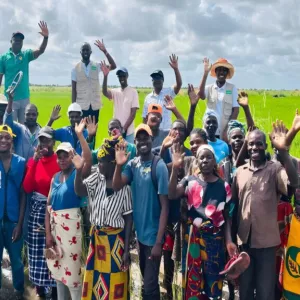How communities are transforming rice-based irrigation systems in Mozambique
By Libere Nkurunziza, Arlindo Matsinhe, and Myrtel Anne Valenzuela Mozambique’s irrigation systems hold great promise, but much of it remains untapped. Smallholder farmers often operate public irrigation schemes without the knowledge or resources to maintain them. Pumps fall into disrepair, canals become clogged, and rice productivity suffers. Weak administrative structures with limited financial transparency, and gaps in technical training make

How communities are transforming rice-based irrigation systems in Mozambique
By Libere Nkurunziza, Arlindo Matsinhe, and Myrtel Anne Valenzuela
Mozambique’s irrigation systems hold great promise, but much of it remains untapped. Smallholder farmers often operate public irrigation schemes without the knowledge or resources to maintain them. Pumps fall into disrepair, canals become clogged, and rice productivity suffers. Weak administrative structures with limited financial transparency, and gaps in technical training make the challenge even harder.
Of the 4,130 hectares of government-built irrigation infrastructure, only 20 percent is currently used for rice production. Despite substantial investments, frequent floods, cyclones, and extreme weather events, combined with limited technical expertise, have left much of the country’s rice potential unrealized.
Existing policies, including the Management Models for State-Constructed Irrigation Systems approved under Council of Ministers Resolution No. 10/2010, aim to address these gaps. Yet turning policy into effective, participatory management has proven difficult.

